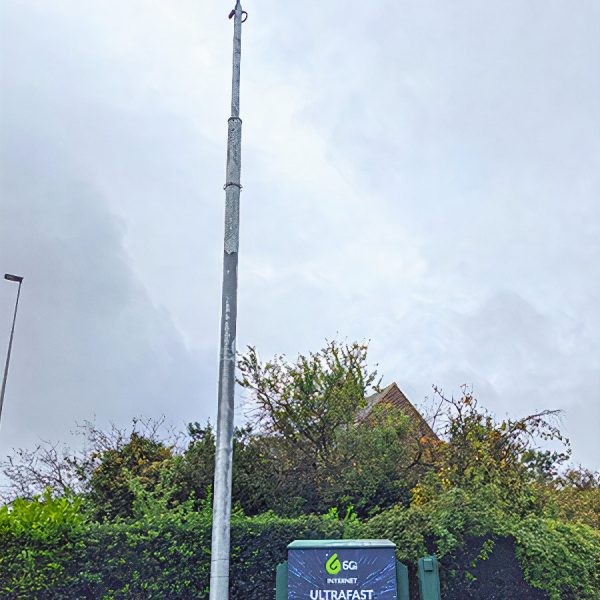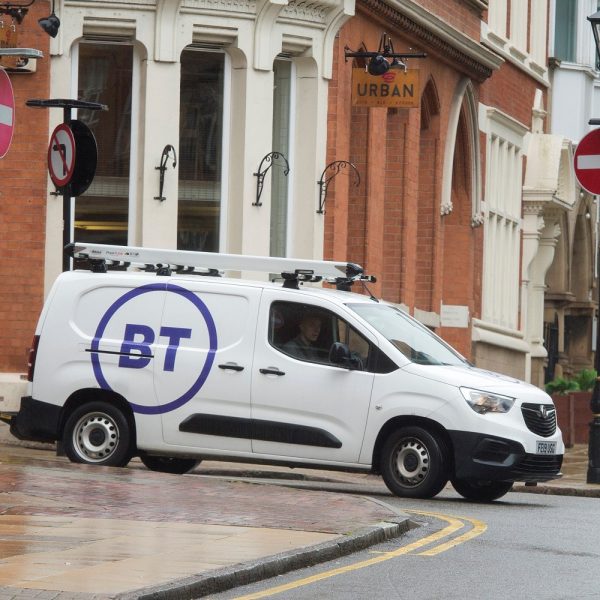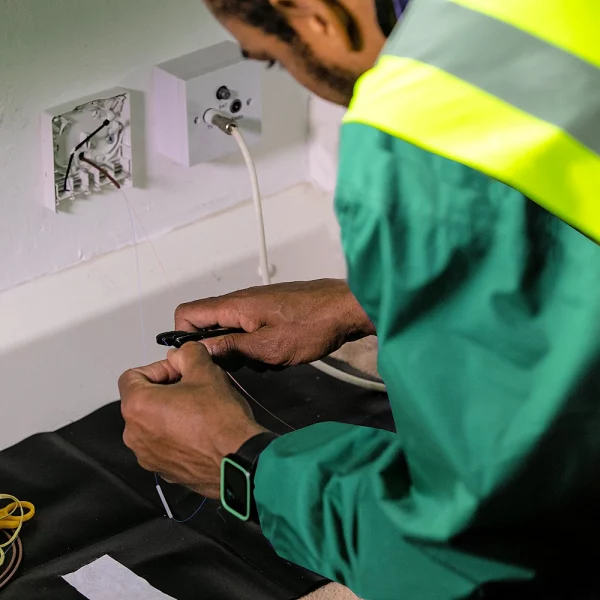Sponsored Links
Letter - UK ISP Easynet on Moving Towards a Truly Borderless World
Posted: 25th Apr, 2010 By: MarkJ
Sunday guest letter written by ISP Easynet ( Easynet Connect ) UK. Doing business in the 21st century will be about much more than location, location, location, argues Adrian Thirkill, global customer operations director for Easynet Global Services.
For centuries, trade has been the catalyst for civilisation, with much of the human geography of the globe shaped by commerce.
Modern metropolises such as London, Shanghai, Barcelona and Boston grew around their ports, which brought their inhabitants goods from across the world and made these cities centres of world trade. For better or for worse, business has shaped our demographics, and undoubtedly continues to do so. However, as the economies of the US and Western Europe have shifted from being goods- to service-based, so the importance of geography to business has changed.
During the 20th century, as the Western world moved away from primary industries, proximity to raw materials and freight terminals became less pivotal to business success. Instead, locating in close proximity to one’s business partners and talent pools became essential, leading to the emergence of industry-specific areas. California’s ‘Silicon Valley’ is perhaps the most high-profile example of this, but similar regions, such as England’s ‘M4 corridor’ to the West of London, and Espoo in Finland (home to Nokia and a number of other telecoms vendors) are testament to this phenomenon. To service their customers and attract talented employees, businesses needed to be located within easy travelling distance of them.
In the 21st century, the advent of universal residential broadband and high-speed managed networking services for businesses and homes is about to prompt a new shift in the geography of business.
The rapid growth of the internet has meant that more and more services can now be delivered online rather than in person, and this is already having drastic effects on the business world. The first example of this came in the retail sector, where the profitability of traditional, high-street vendors was seriously damaged by ‘e-tailers’, who were able to offer lower prices because of savings made on staff and premises. However, in recent years, the use of the internet in industry has become far more sophisticated. Online marketplaces like Alibaba.com, which connects businesses in the west with low-cost manufacturers and suppliers in Asia, is one such example. It allows companies to secure manufacturing contracts from low-cost production centres without the two parties ever actually meeting in person, and its success provides a clue as to how business may be conducted in the decades ahead.
Another such change brought about by the digital age is the potential for technologies such as telepresence and ‘cloud computing’ to transform the way we work. Physical meetings have been a cornerstone of business for centuries, and will no doubt continue to be so for many to come, but with investors’ eyes firmly fixed on companies’ costs, and green concerns now higher on the corporate agenda than ever, business travel is becoming less justifiable. A survey of business leaders we commissioned in 2009 found that one executive in three spends more than 20% of their working hours travelling – a considerable inefficiency. However, the same survey revealed that 97% agreed that personal contact with customers and colleagues was the most important reason to travel.
Telepresence tackles this problem head-on. Providing high-definition video and surround sound, linking any number of locations in a single ‘virtual meeting’, telepresence gives meeting participants the feeling they’re in the same room, even though they could be thousands of miles apart. Since no travel is involved, it is easier to schedule meetings at short notice, and, though an initial investment in technology is needed, many of the companies we surveyed recouped this investment in less than 12 months.
The same can also be said for managed data centres, which enable companies to roll out ‘private cloud’ computing. Managed data centres allow companies to effectively outsource all of their server management to a specialist third party, so companies no longer need ‘server rooms’ on their own premises. The technology involved is too complex to discuss in this piece, but its importance is no less significant than telepresence: it means employees no longer need to go to the office to do their work.
Secure, professionally-managed networks mean that companies can start using the network to deliver work – and the tools to do it – to employees, rather than vice versa. In so doing, they give themselves far wider scope in determining office locations, and this may even result in companies deciding to cut back on office space, or dispense with the typical commercial property model altogether.
Such capabilities will also help to tackle one of the biggest problems facing businesses today: attracting and retaining the best talent. Where a business based in, for example, London or Amsterdam, would have been largely limited to attracting workers in the surrounding area, flexible working, supported by secure managed networks and private cloud computing , means that such limitations no longer exist. The ability to recruit on a genuinely international level – without having to worry about paying relocation bonuses - will enable many bosses to find the talent they need far more easily. In the future, it is conceivable that this highly distributed business model becomes the norm – firms may have product designers in Brussels working in real-time with process engineers in Milan, all under the direction of a chief executive in Hong Kong, with their collaboration facilitated by unified communications, cloud computing and telepresence.
As more employees elect to work from home on a part- or full-time basis, the old notion of work as being centred around an office and undertaken during determinate hours will come to an end. This, in turn, will mean that companies can cast their net wider when looking for new talent, ensuring a better chance of finding the right person for the job.
Such trends could have a huge effect on property prices. If individuals and businesses no longer need to locate near to major urban areas, disparity in property prices will level out, reducing or even ending phenomena such as the “North-South divide” in England.
Whilst this may not be good news for estate agents, what these trends will bring, above all, is opportunity. Whilst high-speed broadband networks, data centres and telepresence may mean businesses span greater distance physically, they will also bring firms closer to their customers and employees than ever before. They promise to create a truly ‘borderless world’, in which the promised free movement of labour and capital finally comes to fruition, giving business instantaneous access to new customers and increased opportunity to expand and succeed.
It will be the companies that recognise this now who stand to gain from this transition. The winners in this ‘new normal’ for business won’t be those with the biggest offices or the most radical architecture, but those that keep a firm eye on the bottom line, while remaining open to the possibilities of new business and organisational structures underpinned by managed technologies.
For centuries, trade has been the catalyst for civilisation, with much of the human geography of the globe shaped by commerce.
Modern metropolises such as London, Shanghai, Barcelona and Boston grew around their ports, which brought their inhabitants goods from across the world and made these cities centres of world trade. For better or for worse, business has shaped our demographics, and undoubtedly continues to do so. However, as the economies of the US and Western Europe have shifted from being goods- to service-based, so the importance of geography to business has changed.
During the 20th century, as the Western world moved away from primary industries, proximity to raw materials and freight terminals became less pivotal to business success. Instead, locating in close proximity to one’s business partners and talent pools became essential, leading to the emergence of industry-specific areas. California’s ‘Silicon Valley’ is perhaps the most high-profile example of this, but similar regions, such as England’s ‘M4 corridor’ to the West of London, and Espoo in Finland (home to Nokia and a number of other telecoms vendors) are testament to this phenomenon. To service their customers and attract talented employees, businesses needed to be located within easy travelling distance of them.
In the 21st century, the advent of universal residential broadband and high-speed managed networking services for businesses and homes is about to prompt a new shift in the geography of business.
The rapid growth of the internet has meant that more and more services can now be delivered online rather than in person, and this is already having drastic effects on the business world. The first example of this came in the retail sector, where the profitability of traditional, high-street vendors was seriously damaged by ‘e-tailers’, who were able to offer lower prices because of savings made on staff and premises. However, in recent years, the use of the internet in industry has become far more sophisticated. Online marketplaces like Alibaba.com, which connects businesses in the west with low-cost manufacturers and suppliers in Asia, is one such example. It allows companies to secure manufacturing contracts from low-cost production centres without the two parties ever actually meeting in person, and its success provides a clue as to how business may be conducted in the decades ahead.
Another such change brought about by the digital age is the potential for technologies such as telepresence and ‘cloud computing’ to transform the way we work. Physical meetings have been a cornerstone of business for centuries, and will no doubt continue to be so for many to come, but with investors’ eyes firmly fixed on companies’ costs, and green concerns now higher on the corporate agenda than ever, business travel is becoming less justifiable. A survey of business leaders we commissioned in 2009 found that one executive in three spends more than 20% of their working hours travelling – a considerable inefficiency. However, the same survey revealed that 97% agreed that personal contact with customers and colleagues was the most important reason to travel.
Telepresence tackles this problem head-on. Providing high-definition video and surround sound, linking any number of locations in a single ‘virtual meeting’, telepresence gives meeting participants the feeling they’re in the same room, even though they could be thousands of miles apart. Since no travel is involved, it is easier to schedule meetings at short notice, and, though an initial investment in technology is needed, many of the companies we surveyed recouped this investment in less than 12 months.
The same can also be said for managed data centres, which enable companies to roll out ‘private cloud’ computing. Managed data centres allow companies to effectively outsource all of their server management to a specialist third party, so companies no longer need ‘server rooms’ on their own premises. The technology involved is too complex to discuss in this piece, but its importance is no less significant than telepresence: it means employees no longer need to go to the office to do their work.
Secure, professionally-managed networks mean that companies can start using the network to deliver work – and the tools to do it – to employees, rather than vice versa. In so doing, they give themselves far wider scope in determining office locations, and this may even result in companies deciding to cut back on office space, or dispense with the typical commercial property model altogether.
Such capabilities will also help to tackle one of the biggest problems facing businesses today: attracting and retaining the best talent. Where a business based in, for example, London or Amsterdam, would have been largely limited to attracting workers in the surrounding area, flexible working, supported by secure managed networks and private cloud computing , means that such limitations no longer exist. The ability to recruit on a genuinely international level – without having to worry about paying relocation bonuses - will enable many bosses to find the talent they need far more easily. In the future, it is conceivable that this highly distributed business model becomes the norm – firms may have product designers in Brussels working in real-time with process engineers in Milan, all under the direction of a chief executive in Hong Kong, with their collaboration facilitated by unified communications, cloud computing and telepresence.
As more employees elect to work from home on a part- or full-time basis, the old notion of work as being centred around an office and undertaken during determinate hours will come to an end. This, in turn, will mean that companies can cast their net wider when looking for new talent, ensuring a better chance of finding the right person for the job.
Such trends could have a huge effect on property prices. If individuals and businesses no longer need to locate near to major urban areas, disparity in property prices will level out, reducing or even ending phenomena such as the “North-South divide” in England.
Whilst this may not be good news for estate agents, what these trends will bring, above all, is opportunity. Whilst high-speed broadband networks, data centres and telepresence may mean businesses span greater distance physically, they will also bring firms closer to their customers and employees than ever before. They promise to create a truly ‘borderless world’, in which the promised free movement of labour and capital finally comes to fruition, giving business instantaneous access to new customers and increased opportunity to expand and succeed.
It will be the companies that recognise this now who stand to gain from this transition. The winners in this ‘new normal’ for business won’t be those with the biggest offices or the most radical architecture, but those that keep a firm eye on the bottom line, while remaining open to the possibilities of new business and organisational structures underpinned by managed technologies.
Search ISP News
Search ISP Listings
Search ISP Reviews
Latest UK ISP News








Cheap BIG ISPs for 100Mbps+
150,000+ Customers | View More ISPs
Cheapest ISPs for 100Mbps+
Modest Availability | View More ISPs
Latest UK ISP News
Helpful ISP Guides and Tips
Sponsored Links
The Top 15 Category Tags
- FTTP (5581)
- BT (3532)
- Politics (2554)
- Openreach (2312)
- Business (2284)
- Building Digital UK (2253)
- FTTC (2050)
- Mobile Broadband (1991)
- Statistics (1799)
- 4G (1681)
- Virgin Media (1640)
- Ofcom Regulation (1472)
- Fibre Optic (1406)
- Wireless Internet (1400)
- FTTH (1382)
Sponsored
Copyright © 1999 to Present - ISPreview.co.uk - All Rights Reserved - Terms , Privacy and Cookie Policy , Links , Website Rules






























